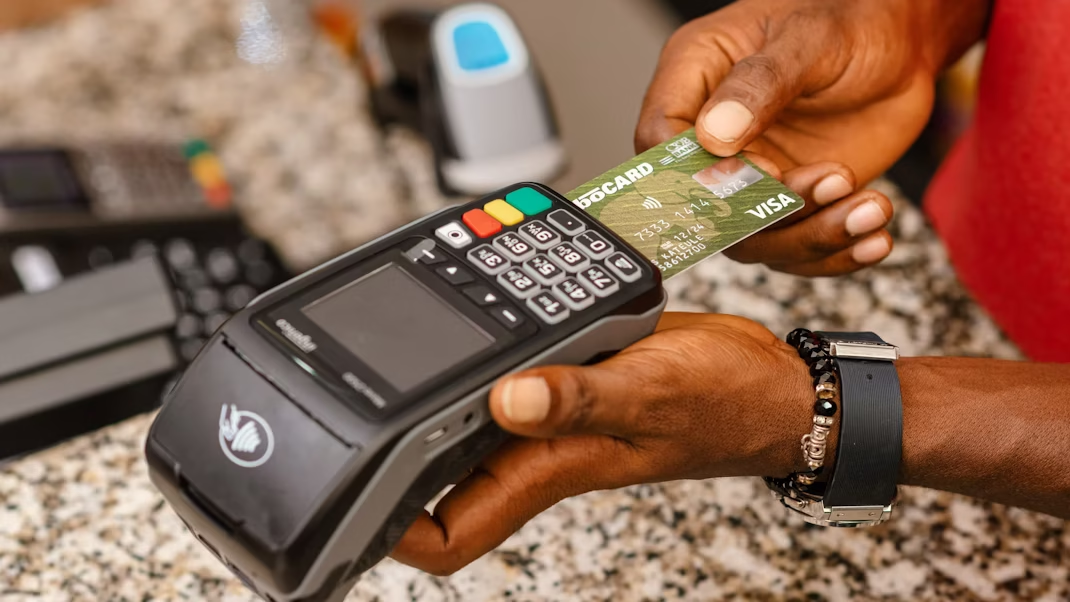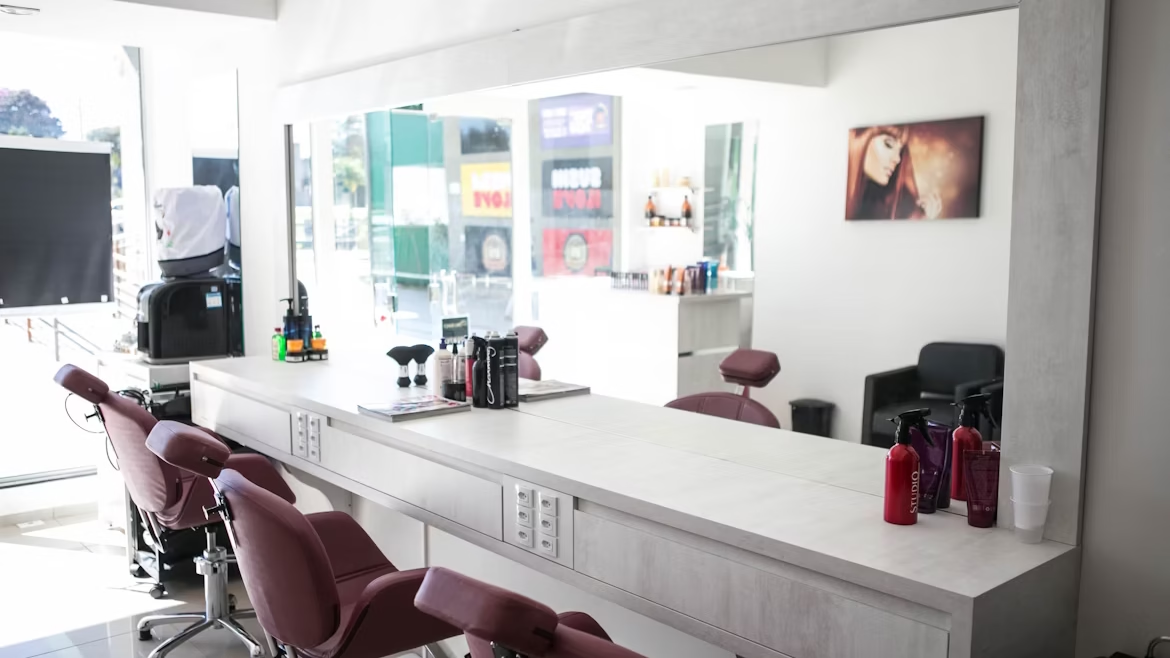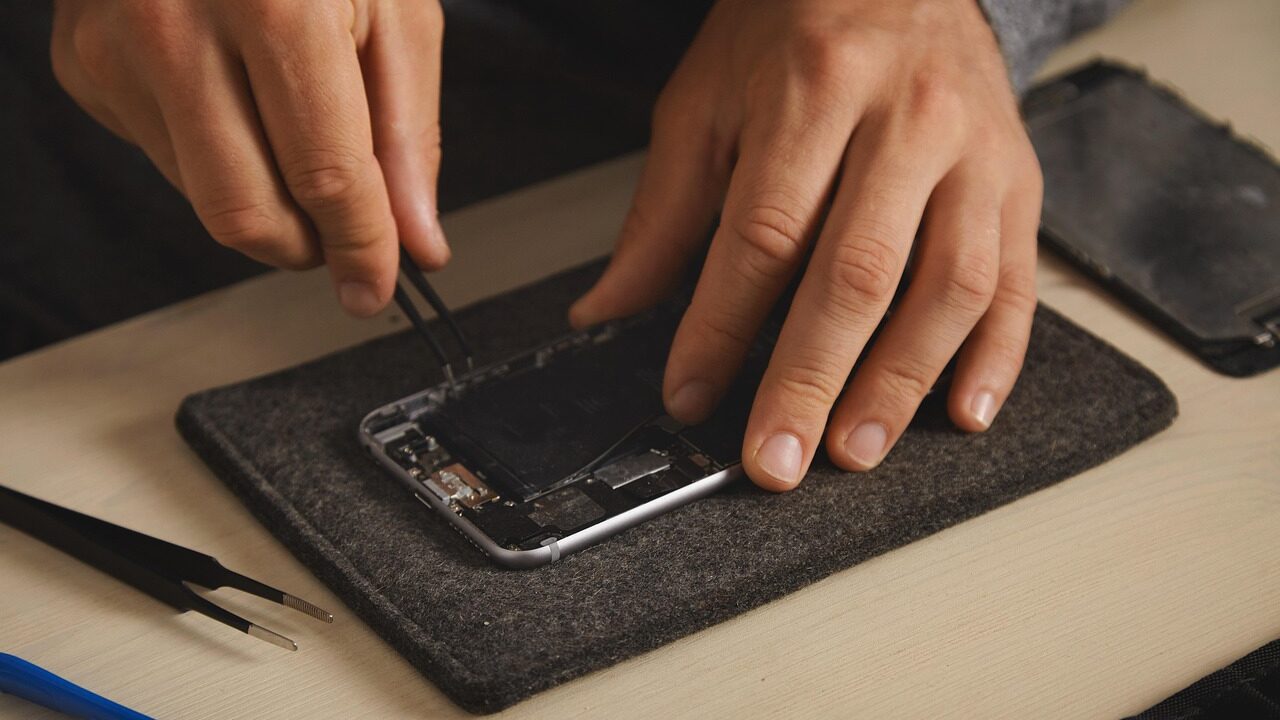Are you looking for Business Ideas in Nigeria that you can start from the comfort of your home? If yes, then this article is for you…………
I grew up hustling in the rough and busy streets of Lagos, and if there’s one thing I quickly realized, it’s that business ideas are everywhere. It’s easy to come up with ideas and even figure out how to execute them when you live in a place full of contrast, chaos, and endless demand for solutions. The hustle, the pressure, the different lifestyles they all create gaps that a smart entrepreneur can fill.
But here’s the twist… that wasn’t my story at first.
Despite all the potential around me, I was stuck. My 9 to 5 job left me drained, and I couldn’t see past my routine. I had a few thousand naira saved up, but I kept thinking it wasn’t enough to start anything meaningful. I didn’t realize that starting small is actually how most successful businesses begin.
Fast forward to today, and I’ve learned a lot. I eventually found ways to earn extra income, and once that first stream started flowing, everything changed.
So why am I telling you this?
Because I know how it feels to be overwhelmed, especially when it seems like you need a lot of capital to start. The truth is, Nigeria is full of opportunities. You just need the right idea and the courage to start, no matter how small.
In this article, I’m sharing both online and offline business ideas in Nigeria that you can start right from your home, even if you’re on a tight budget.
Let’s dive in.
Why Start a Business from Home in Nigeria?
When I made the decision to start something on my own, my main goal was flexibility. I wanted more time with my family and less stress from the daily Lagos grind.
Another big factor? Rent.
The cost of renting a shop or office space was too much for me. I figured, if I could run a business from my room or even my backyard, why not?
Thankfully, we live in a time where smartphones, social media, and delivery services make home-based businesses very practical. I’ve sold things online, handled payments through Paystack, other payment services, and used dispatch riders without ever owning a shop.
Online Business Ideas in Nigeria You Can Start from Home
I’ll walk you through six practical online business ideas that are thriving in Nigeria’s economy. From freelancing and blogging to dropshipping, social media management, digital product sales, and content creation (like YouTube or podcasting), each idea is broken down to help you understand what it involves, how to get started from home, and what it takes to succeed in today’s fast-changing digital landscape.
1. Freelancing

Freelancing involves providing professional services on a project-by-project basis, allowing individuals to work independently without long-term commitments to a single employer. Common services in Nigeria include content writing, graphic design, web development, digital marketing, virtual assistance, and programming. Freelancers can serve clients locally or globally, often earning in foreign currencies like dollars, which is particularly appealing given Nigeria’s economic fluctuations. The flexibility to set rates and schedules makes freelancing ideal for students, professionals, or anyone seeking a side hustle.
How to Start
To launch a freelancing business in Nigeria:
- Identify Skills: Assess your expertise in areas like writing, design, or coding. High-demand skills include SEO writing, UI/UX design, and data analysis.
- Join Platforms: Create profiles on global freelancing platforms like Upwork or Fiverr, or local ones like Asuqu or Jolancer. A strong profile with a clear description of services and a professional photo is essential.
- Build a Portfolio: Showcase previous work or create sample projects to demonstrate competence. For beginners, offering services to friends or local businesses can build a portfolio.
- Set Rates: Research market rates for your skill set. Beginners might start with lower rates (e.g., ₦50,000–₦100,000 per project) to attract clients, increasing as experience grows.
- Market Services: Promote your services on social media platforms like LinkedIn, Twitter, or WhatsApp groups. Networking in online communities can lead to referrals.
- Manage Projects: Use tools like Trello or Asana to track tasks and deadlines. Deliver high-quality work to build a reputation and secure repeat clients.
- Handle Payments: For international clients, use payment platforms like PayPal or Payoneer, ensuring compliance with Nigeria’s foreign exchange regulations.
2. Blogging

Blogging involves creating and publishing content on a website to attract readers and generate income. Popular niches in Nigeria include technology, finance, lifestyle, health, and entertainment. Bloggers earn through advertising (e.g., Google AdSense), affiliate marketing, sponsored posts, or selling digital products like eBooks. Blogging requires consistent content creation and audience engagement but offers long-term passive income potential.
How to Start
To start a blogging business:
- Choose a Niche: Select a topic you’re passionate about with high demand, such as tech reviews, personal finance, or Nigerian cuisine. Research competitors to ensure viability.
- Set Up a Blog: Use platforms like WordPress or Blogger. Purchase a domain name (e.g., .com.ng for local trust) and hosting (starting at ₦10,000–₦50,000 annually).
- Create Content: Write high-quality, engaging posts (e.g., 500–1,500 words) that address reader needs. Post consistently, aiming for 1–2 articles weekly.
- Optimize for SEO: Use tools like Yoast SEO to improve search engine rankings. Include keywords, meta descriptions, and internal links.
- Monetize: Apply for ad networks like Google AdSense once traffic grows. Join affiliate programs or create sponsored content for brands.
- Promote: Share posts on social media, WhatsApp, and email newsletters. Engage with readers through comments and social media interactions.
- Track Performance: Use Google Analytics to monitor traffic and adjust strategies based on popular content.
Read: See how to setup a blog/site
3. Dropshipping or Mini Importation

Dropshipping is an e-commerce model where the seller markets products without holding inventory; suppliers ship directly to customers. Mini importation involves sourcing affordable products (e.g., from China) and selling them locally at a markup. Both models suit Nigeria’s growing e-commerce market, projected to reach about ₦15.4 trillion by 2026, driven by increasing online shopping.
How to Start
To launch a dropshipping or mini importation business:
- Select a Niche: Focus on high-demand products like fashion, electronics, or baby products. Use tools like Google Trends to identify trends.
- Find Suppliers: For dropshipping, partner with platforms like AliExpress or local suppliers. For mini importation, source from sites like Alibaba or 1688.com.
- Set Up an Online Store: Use e-commerce platforms like Shopify, WooCommerce, or local solutions like QShop. Customize the store with product listings and clear descriptions.
- Market Products: Promote through social media ads (e.g., Instagram, Facebook), WhatsApp, or marketplaces like Jumia. Budget ₦50,000–₦200,000 for initial marketing.
- Manage Orders: For dropshipping, forward orders to suppliers. For mini importation, handle logistics and ensure compliance with Nigerian customs regulations.
- Ensure Customer Service: Respond promptly to inquiries and manage returns to build trust.
Read: How to Start a dropshipping Business with no Money
4. Social Media Management

Social media management involves creating, scheduling, and analyzing content for businesses or individuals on platforms like Instagram, Facebook, Twitter, and LinkedIn. Tasks include posting content, engaging with followers, running ads, and tracking metrics like reach and engagement. With over 100 million Nigerians online, businesses increasingly rely on social media to connect with customers, making this a high-demand service.
How to Start
To start a social media management business:
- Learn Platforms: Study algorithms and best practices for major platforms. Free online courses or YouTube tutorials can help.
- Build a Portfolio: Manage personal or local business accounts to showcase skills. Create sample content to demonstrate expertise.
- Offer Services: Provide packages like content creation, ad management, or community engagement. Charge ₦20,000–₦150,000 monthly based on scope.
- Use Tools: Employ scheduling tools like Buffer or Hootsuite and analytics platforms to track performance.
- Market Services: Reach out to small businesses, startups, or influencers via LinkedIn, WhatsApp, X (Twitter), or local networking events.
- Stay Updated: Follow trends like short-form video or AI-generated content to offer cutting-edge services.
5. Selling Digital Products or EBooks

Selling digital products involves creating and selling intangible goods like eBooks, online courses, software, or design templates. These products are created once and sold repeatedly, offering high scalability and no shipping costs. Popular products in Nigeria include educational courses, self-help eBooks, and graphic design templates, driven by a growing demand for online learning.
How to Start
To start selling digital products or eBooks:
- Choose a Niche: Focus on high-demand areas like personal finance, coding, or Nigerian culture. Conduct market research to validate demand.
- Create Products: Write eBooks (30–50 pages) or develop courses using tools like Canva or Teachable. Ensure content is valuable and well-structured.
- Select a Platform: Use platforms like Selar, Gumroad, or Paystack Commerce to list products. These platforms support local and international payments.
- Market Products: Promote via social media, WhatsApp, or a blog. Offer free samples or discounts to attract buyers.
- Automate Delivery: Use platforms with automated delivery systems to send products instantly after purchase.
- Provide Support: Offer customer support via email or WhatsApp to address buyer queries.
6. Starting a YouTube Channel or Podcast

Starting a YouTube channel or podcast involves creating video or audio content on a specific niche, such as cooking, tech reviews, or storytelling. YouTube channels rely on visual content, while podcasts focus on audio discussions or interviews. Both can be monetized through ads, sponsorships, memberships, or merchandise sales. Nigeria’s YouTube audience is projected to reach 12.9 million users in 2026, and podcasting is gaining traction.
How to Start
- For a YouTube Channel:
- Choose a Niche: Select a topic like Nigerian culture, education, or comedy. Ensure it aligns with your passion and audience interest.
- Set Up a Channel: Create a Google account and set up a YouTube channel with a clear name and branding.
- Create Content: Record videos using a smartphone or camera. Edit with free tools like DaVinci Resolve or CapCut.
- Optimize Videos: Use SEO-friendly titles, descriptions, and tags to improve discoverability.
- Promote: Share videos on social media, collaborate with other creators, and engage with viewers in comments.
- Monetize: Apply for the YouTube Partner Program (1,000 subscribers, 4,000 watch hours) for ads or explore sponsorships.
- For a Podcast:
- Choose a Niche: Focus on topics like business, politics, or Nigerian pop culture. Define your format (solo, interviews, or storytelling).
- Record Episodes: Use a smartphone or basic microphone and free software like Audacity for recording and editing.
- Host and Distribute: Use platforms like Anchor or Buzzsprout to host and distribute to Apple Podcasts, Spotify, and Google Podcasts.
- Promote: Share episodes on social media, WhatsApp, or blogs. Invite guests to expand reach.
- Monetize: Seek sponsorships, offer premium content, or use listener donations via platforms like Patreon.
Comparative Overview
| Business Idea | Startup Cost | Earnings Potential | Key Skills Needed | Challenges |
|---|---|---|---|---|
| Freelancing | ₦0–₦50,000 | ₦50,000–₦1,000,000+/month | Specific skills (e.g., writing, design) | High competition, payment issues |
| Blogging | ₦20,000–₦50,000 | ₦100,000–₦5,000,000+/month | Writing, SEO, marketing | Slow audience growth, content consistency |
| Dropshipping/Mini Importation | ₦50,000–₦500,000 | ₦100,000–₦1,000,000+/month | Market research, e-commerce setup | Supplier reliability, delivery delays |
| Social Media Management | ₦0–₦50,000 | ₦50,000–₦500,000+/month | Social media expertise, analytics | Platform changes, client management |
| Selling Digital Products | ₦0–₦50,000 | ₦50,000–₦1,000,000+/month | Content creation, marketing | High competition, content quality |
| YouTube Channel/Podcast | ₦0–₦100,000 | ₦50,000–₦5,000,000+/month | Content creation, editing, promotion | Slow audience growth, production quality |
These online business ideas leverage Nigeria’s growing digital infrastructure, with internet penetration expected to reach 65% by 2025. Success requires dedication, market research, and adaptability to trends like short-form video or AI-driven content. Entrepreneurs should focus on quality, consistency, and leveraging social media for promotion. By starting small and scaling strategically, individuals can build sustainable businesses from home, tapping into both local and global markets.
Offline Business Ideas You Can Run from Home in Nigeria.
1. Catering or Home-Based Food Business

- Catering involves preparing meals for events like weddings or corporate functions, while home-based food businesses focus on daily meal delivery for busy households.
- How to Start: Identify a niche, such as event catering or meal subscriptions, and create a menu featuring popular dishes like jollof rice or small chops. Obtain food handling permits from local health authorities to ensure compliance. Start by catering for small gatherings, using word-of-mouth and social media to build a client base. Basic kitchen equipment, like pots and stoves, is sufficient to begin.
- Growth Strategies: Expand to larger events, offer meal planning services, or partner with delivery platforms to reach more customers.
2. Homemade Products (Soap, Oil, Perfume, etc.)

- This involves crafting and selling natural products like soaps, essential oils, or perfumes, capitalizing on the growing demand for organic wellness products.
- How to Start: Research high-demand products, such as liquid soap or shea butter-based creams, and learn production through workshops or online tutorials. Set up a small home production unit with minimal equipment. Ensure compliance with health and safety regulations, and market through local markets and social media, offering samples to attract customers.
- Growth Strategies: Introduce new product lines, offer customization, and invest in eco-friendly packaging to appeal to wellness-conscious consumers.
3. POS / Mobile Money Agent

- POS agents provide financial services like cash withdrawals, deposits, and bill payments, serving areas with limited banking access.
- How to Start: Partner with a licensed Mobile Money Operator or bank, complete required training, and acquire a POS machine (costing N50,000–N200,000). Set up in a high-traffic home location and market to local businesses and residents. Ensure compliance with Central Bank of Nigeria regulations.
- Growth Strategies: Add more POS units, offer services like airtime sales, and prioritize excellent customer service to build loyalty.
4. Tailoring or Fashion Design

- Tailoring focuses on custom clothing, while fashion design involves creating unique designs, catering to Nigeria’s fashion-conscious population.
- How to Start: Learn sewing and design skills through apprenticeships or self-study. Set up a home workspace with a sewing machine and materials. Register with the Corporate Affairs Commission (CAC) and market through social media, targeting niches like bridal or traditional attire.
- Growth Strategies: Launch ready-to-wear collections, offer bespoke services, and participate in fashion events to build a brand.
5. Home-Based Hair or Beauty Services

- This includes haircuts, styling, makeup, and other beauty services provided from home, driven by Nigeria’s booming beauty industry.
- How to Start: Gain skills through training programs, set up a dedicated home salon space, and obtain necessary permits. Market through social media with before-and-after photos and competitive pricing. Consider mobile services for added convenience.
- Growth Strategies: Expand to nail care or skincare services, offer home visits, and train additional staff to handle demand.
6. Laundry Services

- Laundry services involve washing and ironing clothes for individuals and businesses, meeting the needs of busy urban residents.
- How to Start: Start with basic equipment like a washing machine and iron, costing around N50,000. Obtain permits and market to local households and offices, offering pickup and delivery services.
- Growth Strategies: Scale to multiple locations, add dry cleaning, and focus on quality to retain customers.
7. Real Estate Business

- Real estate involves facilitating property sales, rentals, or management, leveraging Nigeria’s housing demand.
- How to Start: Research the local property market, obtain licenses, and start by connecting buyers and sellers from home. Use social media and real estate platforms to market services, focusing on residential or commercial properties.
- Growth Strategies: Manage properties for clients, partner with developers, and leverage digital tools for broader reach.
8. Transport Business

- This includes operating taxis (Uber, Bolt, and In-Drive), buses, or logistics services for goods and passenger transport.
- How to Start: Obtain vehicle licenses, start with one or two vehicles, and ensure safety compliance. Market locally through social media and partnerships with businesses needing logistics.
- Growth Strategies: Expand the fleet, offer specialized services like school shuttles, and prioritize customer safety and reliability.
9. Agriculture as a Business

- Agriculture involves growing crops or raising livestock, tapping into Nigeria’s food and export markets.
- How to Start: Choose a viable crop or livestock based on location, secure land and equipment, and learn modern farming techniques. Start small and sell through local markets or cooperatives.
- Growth Strategies: Diversify products, adopt technology like irrigation, and explore export opportunities.
10. Car Wash Business

- Car wash services clean vehicles, often with add-ons like detailing, catering to Nigeria’s growing vehicle ownership.
- How to Start: Set up a home-based washing area with hoses and cleaning agents, costing around N50,000. Obtain permits and market to local car owners, offering detailing for added value.
- Growth Strategies: Expand to multiple locations, add services like polishing, and maintain high service standards.
11. Event Planning Business

- Event planning organizes weddings, corporate events, and parties, driven by Nigeria’s vibrant event culture.
- How to Start: Gain experience by planning small events, building a portfolio, and obtaining licenses. Market through social media and event directories, emphasizing creativity.
- Growth Strategies: Handle larger events, offer decor services, and build a reputation for reliability.
12. Bakery and Snacks Business

- This involves baking bread, cakes, or snacks like chin-chin, popular for daily consumption and events.
- How to Start: Learn baking skills, set up a home kitchen, and obtain food permits. Start selling to friends and market through social media and local stores.
- Growth Strategies: Expand product offerings, provide catering services, and invest in branding.
13. Clothing Business

- This involves selling ready-made or custom clothing, capitalizing on Nigeria’s fashion trends.
- How to Start: Choose a niche, source products from wholesalers, and set up a home shop or online store. Obtain licenses and market through social media and fashion events.
- Growth Strategies: Expand to e-commerce, offer bespoke designs, and build a strong brand identity.
14. Phone Repairs

- Phone repair services fix mobile devices, meeting the demand from Nigeria’s 190 million+ mobile subscribers.
- How to Start: Learn repair skills through training, set up a home workshop with tools, and obtain certifications. Market through social media and local ads, focusing on quick, quality repairs.
- Growth Strategies: Offer device sales, train additional staff, and build a reputation for reliability.
15. Preschool & Daycare Services

- These services provide care and early education for young children, driven by the needs of working parents.
- How to Start: Obtain childcare licenses, set up a safe home space, and hire qualified staff. Market to local parents through social media and community outreach.
- Growth Strategies: Add after-school programs, offer transportation, and invest in staff training.
Comparative Analysis Table
| Business Idea | Startup Cost Range (N) | Market Demand | Key Challenges | Growth Opportunities |
|---|---|---|---|---|
| Catering or Home-Based Food | Low (50,000+) | High | Competition, Logistics | Online delivery, Event scale |
| Homemade Products | Low (50,000+) | Growing | Sourcing, Quality | Online sales, Customization |
| POS / Mobile Money Agent | 50,000-200,000 | High | Competition, Security | Multiple locations, Add-ons |
| Tailoring or Fashion Design | Low (50,000+) | High | Competition, Fabrics | Online expansion, Niche focus |
| Home-Based Hair or Beauty | Low (50,000+) | High | Competition, Products | Mobile services, Online |
| Laundry Services | Low (50,000+) | Steady | Power, Competition | Delivery, Scale |
| Real Estate Business | High (varies) | High | Financing, Competition | Property management, Digital |
| Transport Business | High (varies) | High | Regulation, Costs | Fleet expansion, Partnerships |
| Agriculture as a Business | High (varies) | High | Climate, Market access | Exports, Value addition |
| Car Wash Business | Low (50,000+) | Steady | Water, Competition | Additional services, Scale |
| Event Planning Business | Low (50,000+) | High | Competition, Logistics | Niche specialization, Scale |
| Bakery and Snacks Business | Low (50,000+) | High | Power, Competition | Catering, Online sales |
| Clothing Business | Low (50,000+) | High | Sourcing, Competition | E-commerce, Branding |
| Phone Repairs | Low (50,000+) | High | Parts, Competition | Additional services, Reputation |
| Preschool & Daycare Services | Low (50,000+) | High | Regulation, Safety | After-school, Transportation |
Online or offline, the most important thing is to just start. I didn’t have everything figured out at the beginning, but as I took action, I learned, adapted, and found my rhythm along the way.
Opportunities are everywhere, on your phone, in your kitchen, right in your neighborhood. Nigeria is full of potential. All it takes is choosing one idea and taking that first step.
Are you already running a home-based business in Nigeria? Or are you thinking of starting one soon?
Drop your thoughts in the comments, I’d love to hear your story. And if you found this article helpful, feel free to share it with someone who needs a push to start their own hustle.
FAQ
1. What are the best online business ideas I can start from home in Nigeria?
You can explore dropshipping, freelance writing, social media management, virtual assistance, online tutoring, digital products, or affiliate marketing, all requiring minimal startup capital and often just a laptop and internet connection
2. Which offline home-based businesses are profitable in Nigeria?
Consider offline services such as home‑based food catering or meal prep, daycare/childcare services, cleaning services, baking, tailoring, and event planning, these have proven demand and low entry costs.
3. How much capital do I need to start a home-based business in Nigeria?
It depends on the model. Many online services (e.g. writing, VA, tutoring) need under ₦50,000. Some offline ideas like mini‑catering, soap‑making, or baking may require ₦50,000–₦200,000 depending on scale.
4. Are specialized skills or qualifications necessary to begin?
Not always. Some businesses like writing, VA work, and crafts can start with self‑taught skills. Others—such as tutoring, tailoring, or child care, benefit from basic certification or training to build credibility.
5. Can I earn a sustainable income from home in Nigeria?
Yes. Freelancers and tutors can charge ₦5,000 to ₦20,000 per session. Virtual assistants and writers often earn ₦200,000+ monthly. Food services, event planning, and tailoring can bring ₦100,000+ per month with steady clientele.
6. How do I find clients or customers for my home-based business?
Use social media marketing, WhatsApp/Instagram, word‑of‑mouth referrals, and listings on platforms like Jumia, Konga, Upwork, or Fiverr. Offering free demos or referrals helps build trust and exposure.
7. Can I combine both online and offline models in a hybrid business?
Absolutely. For example, you can prepare meals at home (offline) and take orders via e-commerce or WhatsApp (online). Or combine physical daycare services with online parent support and digital bookings.
8. What tools or resources do I need to begin an online service business?
Typically a smartphone or laptop, reliable internet connection, and simple tools like Zoom, Google Meet, or social media platforms. For services like tutoring or VA work or content creation, these are often all you need to get started.
9. How do I scale my home-based business over time?
You can scale by:
- Expanding services or packages (e.g. from door-to‑door delivery to meal subscriptions)
- Hiring help or subcontractors (e.g. additional VAs or cooks)
- Partnering with online marketplaces like Jumia or Konga
- Creating passive income through online courses, e-books, or digital subscription models.
10. Are there reliable platforms to help kickstart an online business in Nigeria?
Yes. Platforms like Upwork, Fiverr, Jumia, Konga, Udemy, and local e‑commerce services like Jiji are popular and accessible. They provide exposure, access to customers, and tools for payments and delivery.




